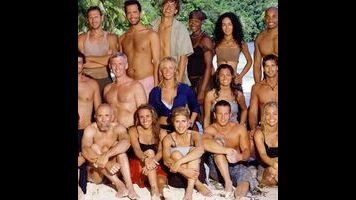“Play To Win” poses the interesting question: Has Survivor gameplay irrevocably changed?

Throughout this Second Chances season, Survivor has made it a point to focus on the experiences of those returning players who were originally on earlier seasons. People like Jeff Varner, who originally played the game in the second season, could not get over the speed of the current game, and much of his arc on the show was about him learning to adapt. Likewise, Savage has repeatedly commented on more of the character of the game, with his perception being that it is somehow less noble than it used to be. This recurring underlying theme becomes far more overt in this episode, when, after a wild few days of strategy, Jeff Probst specifically questions everyone during Tribal Council to ask if the game has changed forever.
It’s a fascinating question made even more interesting by the fact that Probst—a producer on the show and someone who is heavily involved with the game both on and off-camera—is so willing to take this subtext and make it overt text. The specific genesis of his question is important to consider before actually answering, however, and it’s essential to note that it happens after an entire episode full of constant strategizing and alliance-shifting. This is the result of a merge that happens with 13 people left in the game, which is an insane number of people to merge together. With 13 people, a true majority requires seven people, an incredibly unwieldy number to corral into a true alliance. Because of this, the entire episode is pretty much filled to the brim with people trying to figure out what the heck is going on.
The upside of all of this strategizing is that there is plenty of interesting game talk. The downside is that much of it is dominated by Savage, for some reason. Pretty early on it becomes clear that the main split in the tribe is going to be the original Bayon group of six and whatever the heck Kass’ gang over at Ta Keo is calling themselves. This leaves swing votes in the form of Joe and Spencer, and Savage wastes no time getting in Joe’s ear and trying to swing him to the Bayon side. Meanwhile, Kass is pretty positive Spencer now trusts her and will work with her going forward. Spencer’s loyalty to Kass doesn’t seem as sure once it’s his turn to weigh in, however, and he even sits down with Joe to help him work through what they both should do through what I guess are sports metaphors, in Spencer’s world. (Does Joe even like sports?)
Where things really start shaking out is when Kass and Tasha’s previous acrimonious relationship for Cagayan rears its ugly head here. Kass attempts to get information from Tasha, who sidesteps her and refuses to fork over the info on her alliance. From that point, Kass points her sights directly on Tasha and announces her decision to vote for her in front of everyone. It’s a silly mistake, especially because it does nothing point put a target directly on her own back. Why call attention to yourself when you don’t have to? This results in the Bayon group targeting Kass, with the votes splitting between Kass and Ciera in order to avoid an idol situation.
Going into Tribal Council, it’s still fairly unclear who between Kass, Ciera, and Tasha, will be the one going home. It’s the sort of Tribal where the people in danger are clearly identified—so much so that it is outwardly acknowledged during the discussions. When Kass is voted out, it’s not surprising at all but not obvious either, which is probably the best kind of way for an episode to end.
Kass getting voted out isn’t the most interesting thing about Tribal, though. The interesting thing is how Jeff Probst gets everyone to talk about their theory of Survivor’s game mechanics and whether or not the current gameplay strategies are different than they were when the show first began. On its face, this is a silly question; of course the game has evolved since it was first played, as people who come on the show get savvier from watching previous seasons. But what’s explicitly stated here that hasn’t really been addressed in an overt way on the show before is how the concept of alliances have specifically changed. Here, Probst asks if alliances are destined to be a thing of the past, replaced by ever-shifting voting blocs. This is somewhat of an extreme statement, but following how alliances have shifted over the last few episodes it doesn’t seem that far from the truth. Kass, for example, was victim of her own shifting voting bloc fiasco, flipping last week to get rid of Woo and then being flipped on again here, a casualty of an early merge and her own big mouth.
These types of vote shifts aren’t new to the game at all, but the frequency with which these seasoned players are willing to shift certainly feels more extreme than it has in the past. It might not mean the game is changed forever, but it certainly feels like a perceivable difference. Luckily it’s a damn entertaining difference so far.
Stray observations:
- Joe won immunity. SURPRISE!
- Stephen Fishbach story hour starts at 2pm every day on Orkun beach. Don’t be late.
- I enjoyed the repeated use of the phrase “bro down” as a pejorative here.
- Kass claims she never lied in her first season or this one. I…am not sure that is true. In the battle of Tasha vs. Kass, I’m pretty pleased Tasha came out victorious. I’m rooting for her.
- I enjoyed Ciera’s fire here, but why the heck did she vote Savage? Was she so sure the vote was going Kass? This feels like madness to me.